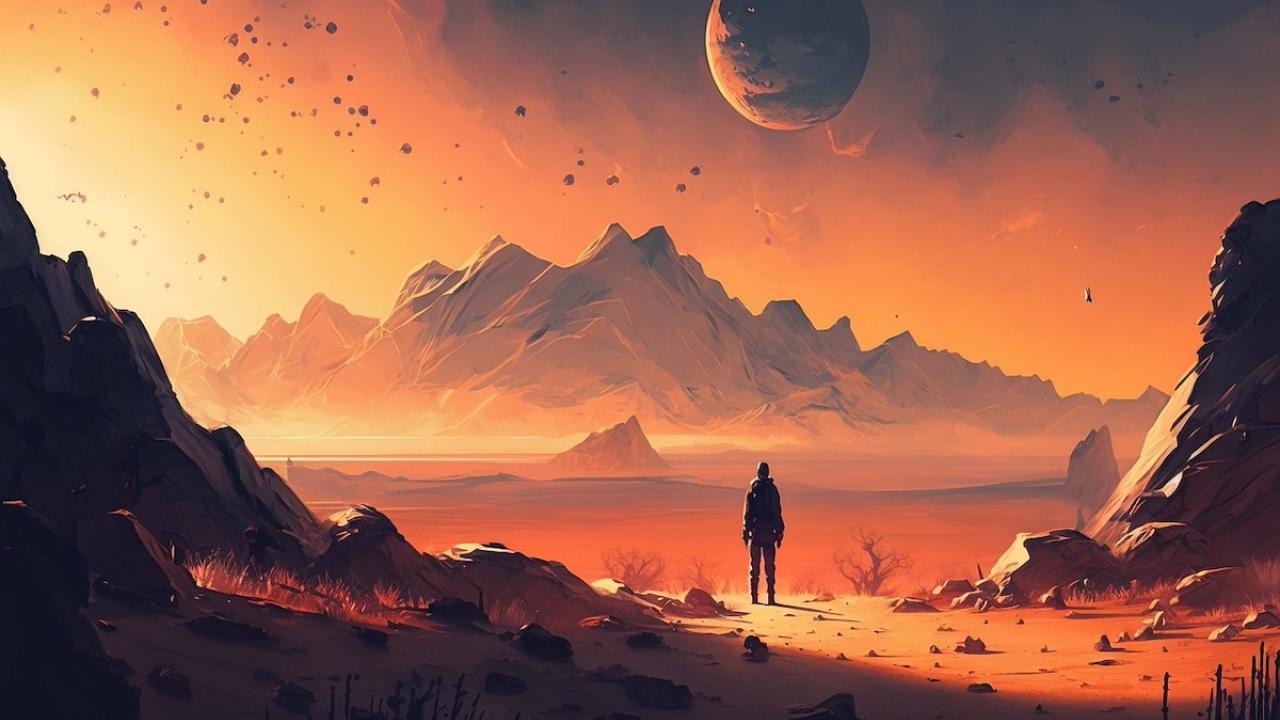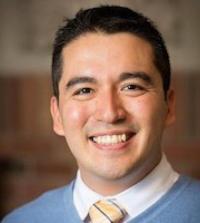
Top Sci-Fi Recommendations From Science and Technology Studies Faculty
Science fiction is a sandbox for the imagination, one that’s tethered to our greatest hopes and fears, for the future, for technology, for our destiny as a species. It’s a genre that 20th-century author Ray Bradbury defined as “the art of the possible, never the impossible.”
As technology blurs the line between science fiction and science fact, now more than ever it’s imperative to equip students with the skills to address the world-changing effects of scientific and technological revolutions. The Department of Science and Technology Studies (STS) in the College of Letters and Science at UC Davis aims to accomplish this by unifying the humanities and social sciences with the science, tech and medical fields.
We asked a few STS faculty for their top science fiction recommendations for the eager reader. Check out their recommendations below.
Professor of Science and Technology Studies
Professor of Cinema and Digital Media
The Dispossessed by Ursula K. Le Guin
One of the best books ever written about scientific discovery and political power. Le Guin's "ambiguous utopia" book is a world split into an experiment and a control group, with an anarchist civilization exiled to a barely habitable moon and out of contact for centuries with the home planet, whose various societies — capitalist, liberal-democratic, aristocratic, totalitarian — carry on as before.
Her story runs on two tracks that converge when these two worlds are bridged by her main character, an anarchist mathematician with a breakthrough that will disrupt them both. Nowhere else in fiction is the question of how science happens in practice, and under what social conditions, explored as deeply or with such intensity.
Mars Trilogy by Kim Stanley Robinson
Red, green, and blue: the three novels together are a sweeping multi-generational epic about the terraforming of Mars whose sense of pacing and rhythm — from the structure of a murder mystery and a survival adventure, to the unfolding of plans and programs that take centuries — allows it to pose the big questions of scientific and technological change.
It is rigorously grounded in the hard problems of water, sunlight, oxygen, radiation, and gravity, which it uses to ask: How much should we intervene in the universe as we find it? What do we owe to the future versus the present? Can humans live in harmony with our environment, as we technologically modify it to suit our purposes? How much can humans change — our lifespans, our psychology, our genes — before we become alien to ourselves?
The Book of the New Sun by Gene Wolfe
This one is actually four books, but I have to include it. For me, this is one of the greatest things science fiction ever produced (Le Guin called Wolfe "our Melville"). It's a masterpiece of prose, style, plot, and imagination, a mediation on memory, time, identity, and good and evil with a tidal narrative pull that doesn't put you down once it picks you up. Set in the far, far future, in a post-scientific and post-technological society in deep decline — in the aftermath and the ruins of the usual projects of science fiction — it offers a fascinating reflection on topics like relativity, genetics, spaceflight, and artificial intelligence, which have survived only as mythology and folklore, or are embodied in artifacts and ceremonies whose purpose is no longer understood.
Associate Professor of Science and Technology Studies
A note: As technology changes, so too do people’s relationships with media, including books. Con Diaz noted he often listens to audiobooks for the fiction genre.
The Broken Earth trilogy by N.K. Jemisin
This is an award-winning series that a lot of folks love. It's set in a world devastated by powerful earthquakes, in which a few people called "orogenes" have the capacity to manipulate seismic waves. The books are a treasure, but I'm obsessed with them because of how N.K. Jemisin imagines what this seismic power is and how it works. Even a rookie orogene can move a mountain. True mastery is the ability to focus this raw power and control even the most delicate of seismic waves. I’m a classically trained singer, and this is exactly how I was taught that vocal mastery works. The greatest mastery is not the ability to make the loudest sound, but to sustain the most delicate sounds, as if they were just another part of the air.
Steelheart by Brandon Sanderson
This is the first work of fiction I related to as an adult, and I've listened to it more than 10 times. It's set in a world where having superpowers inevitably corrupts you. At first, the reason I got into this book was very simple: it's written as a first person narrative, so it made it very easy for me to close my eyes and imagine myself in a completely different world. English is my second language, and this immersive feeling made it easier for me to understand the spoken words (something I still struggle with). Later, I realized I was connecting with the book because it's a story about finding power not by changing who you are, but by carving out a place for yourself in relation to the people and systems around you.
Associate Professor of Science and Technology Studies
Parable of the Sower and Parable of the Talents by Octavia Butler
These novels chronicle the life of a young Black woman from Southern California as she navigates a dystopian world not unlike our own and builds a utopia within it. Written in the mid-1990s, but set in the 2020s, it is amazing to see how similar our current world is to the dystopia Butler imagined, and instructive to see what is different.
Stories of Your Life and Others by Ted Chiang
This delightful book of short stories plays with concepts like time travel and parallel universes in really fun and thought-provoking ways. The title story, “Story of Your Life,” was adapted into the film Arrival.
Gary Snyder Chair in Science and Humanities
Professor of Science and Technology Studies, English, and Cinema and Digital Media
Midnight Robber by Nalo Hopkinson
Hopkinson’s novel conjures a high-tech world shaped by Afro-Caribbean languages, histories and cultures. Mixing cyberpunk motifs with ecological concerns in a gripping narrative about trauma and survival, the novel brilliantly addresses the legacies of colonialism, the fracturing and reforming of communities, and the cultivation of multispecies kinship bonds. It is novel that underscores the power of storytelling for social justice, technoscientific innovation and responsible planetary stewardship. It is also a novel that provides important considerations about how we relate to nonhuman intelligences, including the intelligent machines that are increasingly embedded in the infrastructures of everyday life.
Icehenge by Kim Stanley Robinson
Among Robinson’s many astounding novels, this one remains my personal favorite. A multi-layered narrative whose different sections may reveal contradictory perspectives about the central mystery at the heart of the story, Icehenge explores how scientific knowledge changes in relation to historical contexts and how seemingly secure facts may later become discredited fictions. But the novel also emphasizes how even purely fictional narratives may play an outsized role in inspiring scientific and political change.
Grass by Sheri S. Tepper
In exploring an ecological mystery on an alien world, this novel creates an atmosphere of dreadful curiosity — and the surprising twists and turns of its plot eventually unveil a secret that requires us to reevaluate the entire story in a new light. It’s a novel about power hierarchies, evolution and forms of symbiosis that drive biological and social transformations. Somber, haunting, and suspenseful.




